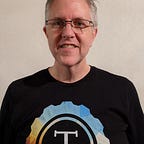Technical Interview Preparation for the newcomer to our industry
Let’s start with this:
You belong.
Whoever you are, whatever your background, you bring something to tech that none of us have seen before. You have a perspective we need to hear, you have stories we’ve never heard, and you’re going to approach problems in ways we may never have imagined. Welcome to the team.
Our industry is full of bias, and I’m pretty sure it’s the only white-collar job that requires you to prove you can do the job before getting a job offer. You never hear of doctors applying for jobs and being told, “Go perform brain surgery on this patient; if they live, you get the job.” But that’s exactly what our software industry feels like.
Medical degrees come with review boards and credentials. Law degrees have the “bar exam”. Even tradeskills have licensing committees that put their name behind you — that you have been trained in a particular discipline. Others who trust that committee/credential/etc can therefore trust you have a minimum amount of knowledge and skill.
Our industry, however, has no such thing. Unless you have a degree from a prestigious school, or other “credential”, but those must be inherently “trusted” by those screening your appliction, reading your resume, looking for reasons to say “no” to thousands of you applying for one job.
Ethics aside … our industry has a very broken sense of trust. Our interview process reflects that for how many hoops we have to jump through to prove we can do the work before we can get a job. The first time I think I was “trusted” was interviewing at a startup in Boulder, CO. Their Director of Engineering at the time offered me the opportunity to come by and meet their team. I asked if I should prepare for the full-scale technical interview. “No, you’ve been working at SendGrid for 4 years — if you were incompetent, they’d have fired you long ago.” And that was that, I had a new job. This was also 15+ years into my career.
See, I didn’t come from a prestigious university. I went to community college in Canada. My 3-year diploma as a Computer Engineering Technologist was slightly more than an Associate’s degree in the US, but looked down upon by those requiring a Bachelor’s degree.
Over the years, I’ve been a team lead, managed small teams within engineering departments, helped sculpt and define interviewing processes, and been in charge of engineering hiring, consulting work and technical coaching. I’ve argued against “requiring” bachelor’s degrees, I’ve advocated for non-degree holders to get interviews. We still have a long way to go.
In the meantime, I’ve written a TON of material that I consider helpful to the new developer in the tech industry.
It started as 30+ pages of a Google doc that was shared around, person to person, having repetative calls with folks, telling them the same things about resume formatting, negotiation ideas, etc.. So I decided the best way to “scale” this information was to publish it online.
So I moved everything to techinterview.guide, including a daily email series:
Aside from the work-in-progress text about resumes, cover letters, interview prep work, I also wrote an email series — a 42-message series that takes about 5 minutes per day to read and digest. I review common interview questions, but from an interviewer’s perspective. Why am I asking this kind of question? What do I hope to hear in your answer? What don’t I want to hear in your answer?
As for the book content, I’ve slacked on getting some updated material written and have a few chapters to finish, but wanted to get it out there for folks who are looking for assistance.
I also recently wrote an article for interviewing.io about common problem areas I see as a professional interview coach.
Find me on LinkedIn if you want to connect and ask for help.
